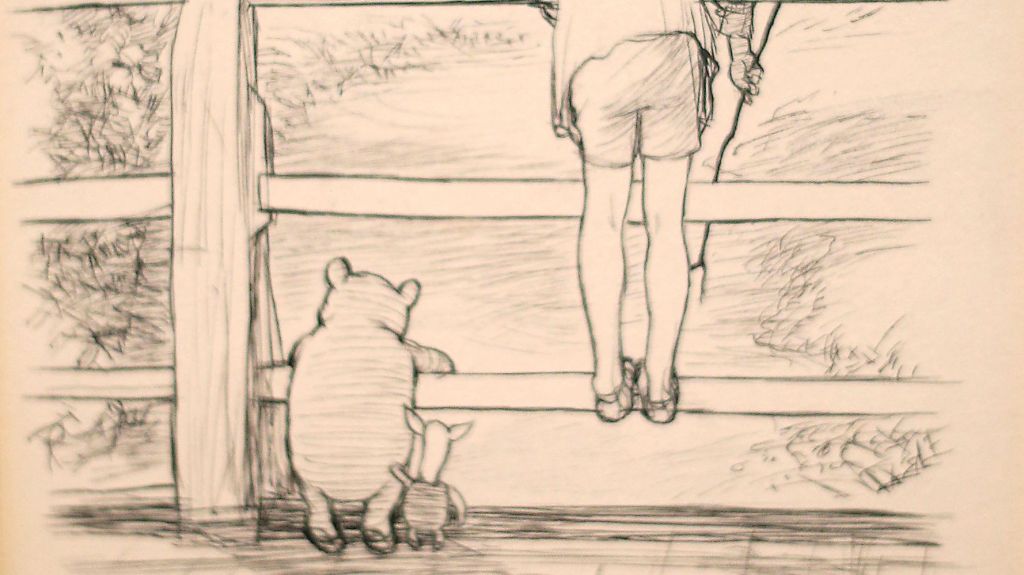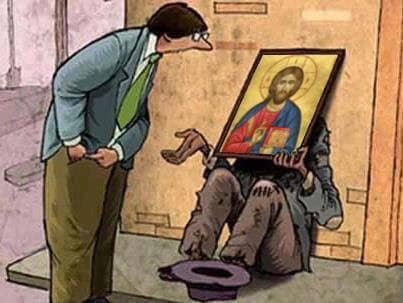Four years ago, the book “We Came, We Saw, We Converted – The Lighter Side of Orthodoxy in America” was translated into Russian and published in Russia. Some time later, I was interviewed via email by a Russian online magazine. (I would maintain that the interviewer confuses satire with sarcasm, but that’s just me.) Here’s that interview from several years ago:

1. Fr Huneycutt, could you, please, tell us how the Baptist pastor became an Orthodox priest? When and how did you understand that the truth is in Orthodoxy? What influenced you?
I grew up in a Southern Baptist home; I was never a pastor in the Baptist church. I converted to Anglicanism in the 80’s and attended seminary at Nashotah House Episcopal Seminary in Wisconsin. During seminary, whenever we studied Christological controversies, we had to resort to Orthodox sources to discover what the Church had always believed. This planted a seed, along with my appreciation of iconography and Orthodox moral, ethical, and liturgical stands (and the deterioration of the same within Anglicanism).
2.Could you, please, tell us a bit about your family, life and ministry these days?
My wife, Elizabeth and I have three children, aged 17-25. I serve St Joseph Church in Houston, Texas. I am also the regional dean of seven parishes in Southeast Texas. I also work with the Antiochian Archdiocese Department of Missions and Evangelism.
3.You are broadcasting about Orthodoxy on the radio. What questions are you asked? What interests Orthodox Americans these days?
After years of “Christian devolution” many Americans are seeking the changelessness of Holy Orthodoxy. Most of my listeners also appreciate practical wisdom and humor.
4. Is what you say in your programs and write in your blog censored by the ruling Bishop? Have you ever been corrected or punished because of the use of wrong words on air? Does the Orthodox Church in the USA have freedom of speech for pastors and theologians?
No. My podcasts have never been censored or corrected by a bishop. In my experience, yes … there is freedom of speech for pastors and theologians in the United States of America.
5. The relations between the governments of Russia and the United States are getting worse day by day. A new “cold war” is said to have begun. What do you think about it? Does this tension affect your congregation? They say that priests among the parishioners of whom there are Russians and Ukrainians, for example, are having a hard time …
While one may read many things on the Internet, such affairs have had little effect on my local parish. We currently have 22 persons being prepared to be received into the Church at Pascha. Sure, priests and parishioners may have many and varied political opinions — but, in the Church, we are one in Christ. True, it is a struggle — but the struggle is good. Without struggle, there is no salvation. Earthly kingdoms rise and fall, but the Kingdom of God remains.
6. As a citizen of your country do you support the sanctions that the US imposes against Russia? What is the way out of this situation? How to resolve contradictions between our countries?
My concern is for the local, regional, diocesan, and archdiocesan flock. (See above.)
7. In the Chapter of your book which is called “The Great Orthodox Awakening” you described a utopia saying what would happen if Orthodoxy in the United States became the dominant religion. It seems to me that this Chapter, despite all its sarcasm, almost accurately describes the situation with Orthodoxy in today’s Russia. Every Church has its “Orthodox fixed price shop”… Would you like Christianity to become the dominant religion in the US, and the President Trump, for example, like Putin to take a dip in an ice-hole on Epiphany Day and receive the Holy Communion in front of cameras? What dangers can this pose?
I believe that chapter speaks for itself — especially the final sentence: “In the end, it all goes back to what St. Seraphim said: ‘Acquire the Holy Spirit, and thousands around you will be saved.’” I have no control over political figures; it is enough to work on my own wretched self. Perhaps, were I a better witness to Christ and the Church, I might have an impact — at least, I might find salvation.
8. One of the chapters of your book is called “Orthodox Christian Anarchist at Large”. It was translated into Russian as “Orthodox exposers”. In this Chapter, you write sarcastically about those who expose the Church. Wasn’t Christ an “Orthodox exposer”? He fearlessly denounced the Church of that time and was crucified because of that…
Rather, Christ was a Hypocrisy Exposer. Christ founded the Church. Being the God-Man, he willed to suffer and die … and rise again that we might have Life.
9.The full name of your book published in Russia sounds like “We Came, We Saw, We Converted. The Lighter Side of Orthodoxy in America”. What or who is on the “dark side” of Orthodox in America?
The use of “Lighter”, in the subtitle, refers to humor; any “dark side” is always due to human sinfulness — which is where the Church, our Spiritual Hospital, is our aid, our respite, our home.
10.You live and serve in Texas. What features does the local flavor bring to the life of the Orthodox community?
Well, although we have members who are Lebanese, Greek, Russian, Georgian, etc, on feast days you are just as likely to find barbecue, hamburgers, and hotdogs as the more traditional “Orthodox” food fare. All of our services are in English (usually with a Southern accent). Most of our parishioners are Americans who converted to Orthodoxy as adults.
11. Don’t you think that in the United States, and in Russia, too, people go to Orthodox churches in order to find their roots and national identity there, but not Christ?
No; at least not in my parish.
12. What are the main problems of the American Orthodox Church and Orthodoxy in America in general?
Multiple, overlapping, jurisdictions.
13. When you look at the life of the Russian Orthodox Church, what advantages do you see that you would like to adopt in America, and what mistakes do you see that you would like to avoid?
I have never been to Russia. But, having been to Lebanon, Syria, and Greece — the gracious hospitality and communal comradery is something that we Americans could stand to appreciate, learn, and emulate.
14. What would you like to tell or wish the readers of your book?
Would that we all be saved! All is from God! Repent for the Kingdom of God is at hand!
Glory to God for all things!


